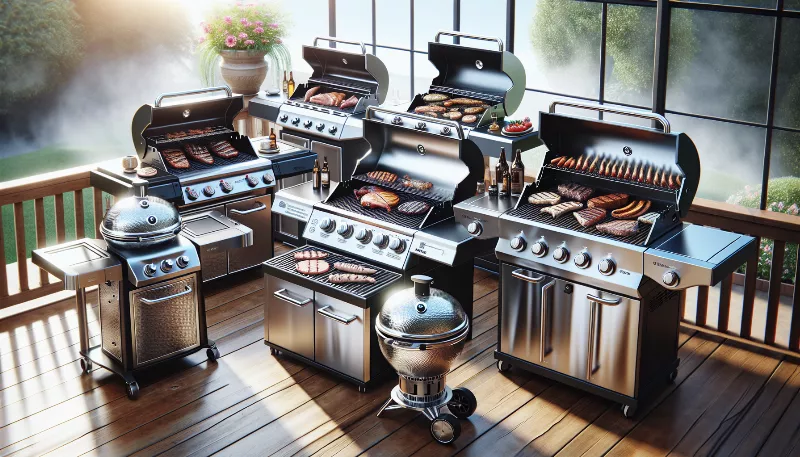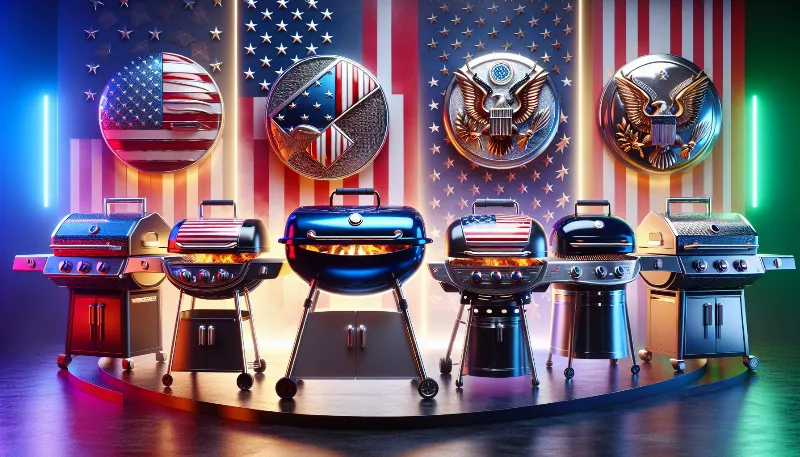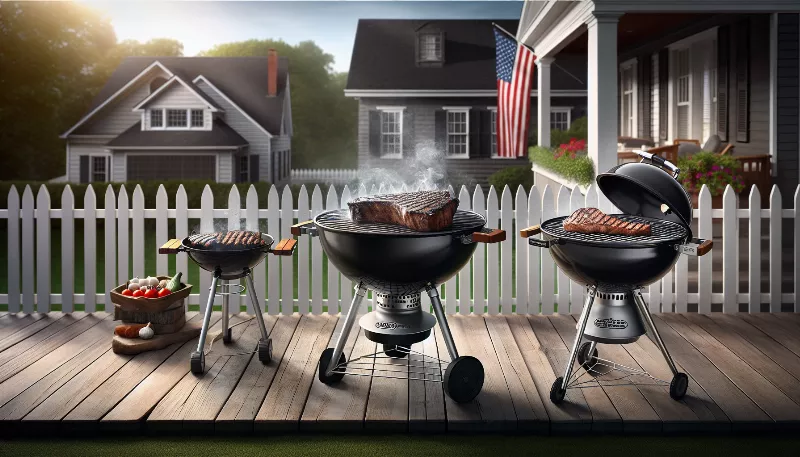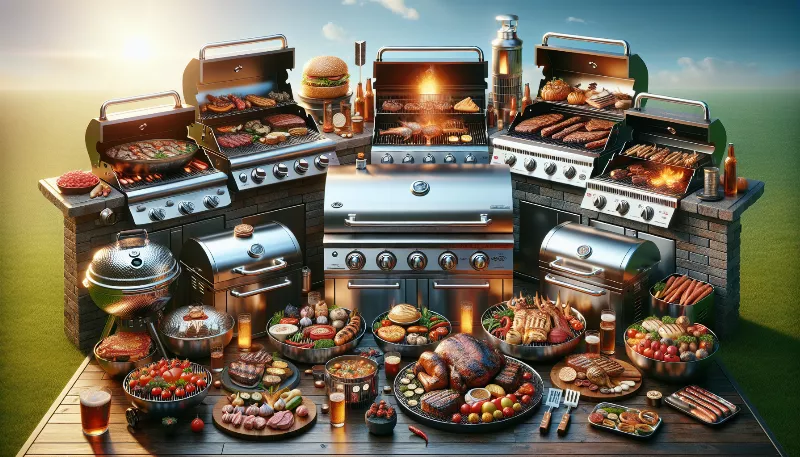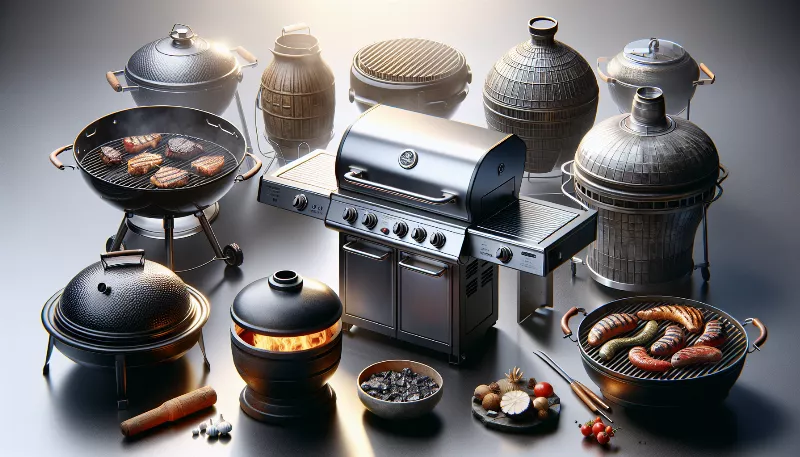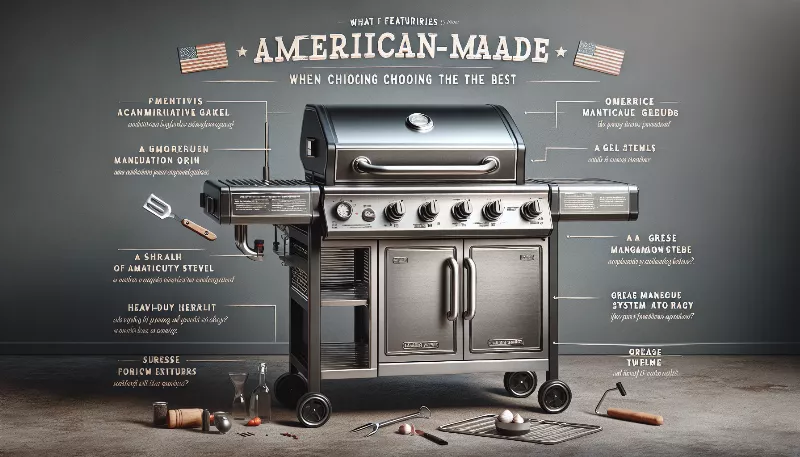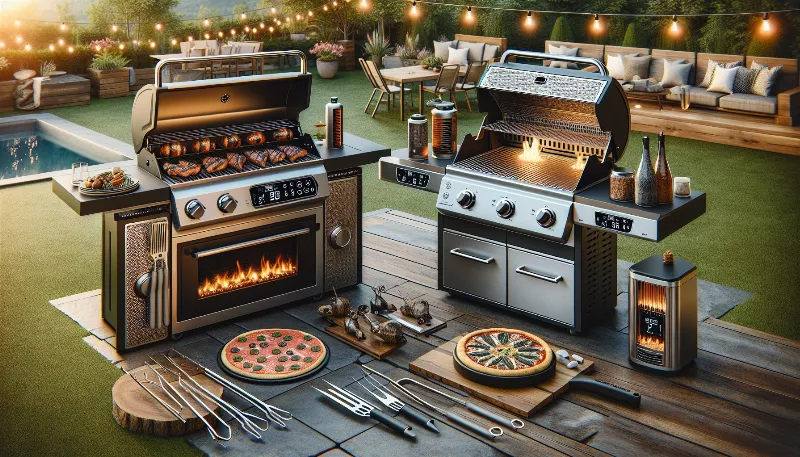What are the key differences between Weber and Traeger grills?
Discover the ultimate grill showdown: Weber vs Traeger! Learn the distinct features, performance, and value to make your perfect BBQ choice.
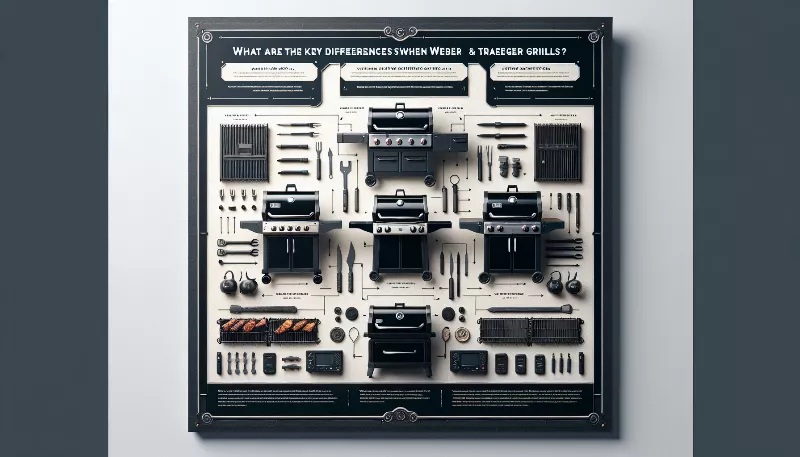
Ignite Your Grilling Passion: Weber vs. Traeger Showdown
When it comes to outdoor cooking, two titans dominate the grill landscape: Weber and Traeger. Each brand brings its unique flair to the art of grilling, offering distinct features that cater to various culinary enthusiasts. Whether you're a seasoned pitmaster or a weekend warrior, understanding the key differences between Weber and Traeger grills can elevate your grilling game to new heights. Let's dive into the smoky world of these grilling powerhouses and discover what sets them apart.
Fueling the Fire: Charcoal, Gas, or Pellets?
Weber has built an iconic reputation on the back of its classic kettle charcoal grills. While they've expanded their lineup to include gas and electric models, charcoal remains a staple of the Weber identity. The tactile experience of lighting charcoal, managing the flames, and mastering temperature control is a ritual for many Weber enthusiasts. On the flip side, Traeger has revolutionized outdoor cooking with their wood pellet grills. Traeger grills are synonymous with the set-it-and-forget-it convenience, providing consistent temperatures and a signature smoky flavor without the hands-on approach required by charcoal.
Smart Technology: Grilling in the Digital Age
Traeger has embraced the smart home trend, integrating Wi-Fi technology into their grills. This allows pitmasters to monitor and adjust temperatures remotely via a smartphone app, ensuring perfect results every time. Weber, while offering some models with digital features, traditionally focuses on a more manual approach to grilling. However, they have recently stepped into the smart grilling arena with their own connected devices, aiming to blend their classic grilling experience with modern convenience.
Construction and Durability: Built to Last
Both Weber and Traeger are known for their durable construction, but they approach design differently. Weber grills often feature porcelain-enameled lids and bowls, stainless steel grates, and rust-resistant aluminum dampers. These materials are chosen for their ability to withstand the elements and maintain heat efficiently. Traeger grills, with their heavy-duty steel construction and powder-coat finish, are built to endure the rigors of pellet grilling and provide years of reliable service.
Flavor Profiles: A Tale of Two Tastes
The choice between Weber and Traeger can also come down to the desired flavor profile. Weber's charcoal grills offer that classic, chargrilled taste that's been beloved for generations. Gas models provide convenience while still allowing for some smoky flavor with the use of smoker boxes. Traeger grills, with their variety of wood pellets ranging from hickory to applewood, offer a more nuanced and customizable smoky flavor that infuses the food as it cooks.
Price Points and Value: Investing in Your Grilling Future
Price can be a significant factor when choosing between Weber and Traeger. Generally, Weber grills can range from affordable to high-end, depending on the model and features. Traeger grills tend to be an investment, with their pellet technology often commanding a higher price point. However, both brands offer exceptional value, with robust warranties and a reputation for longevity that can justify the upfront cost.
In conclusion, whether you're drawn to the hands-on charm of Weber or the high-tech ease of Traeger, both brands offer compelling reasons to take your place behind the grill. Consider your preferred grilling style, flavor aspirations, and budget to make the choice that's right for you. Happy grilling!


